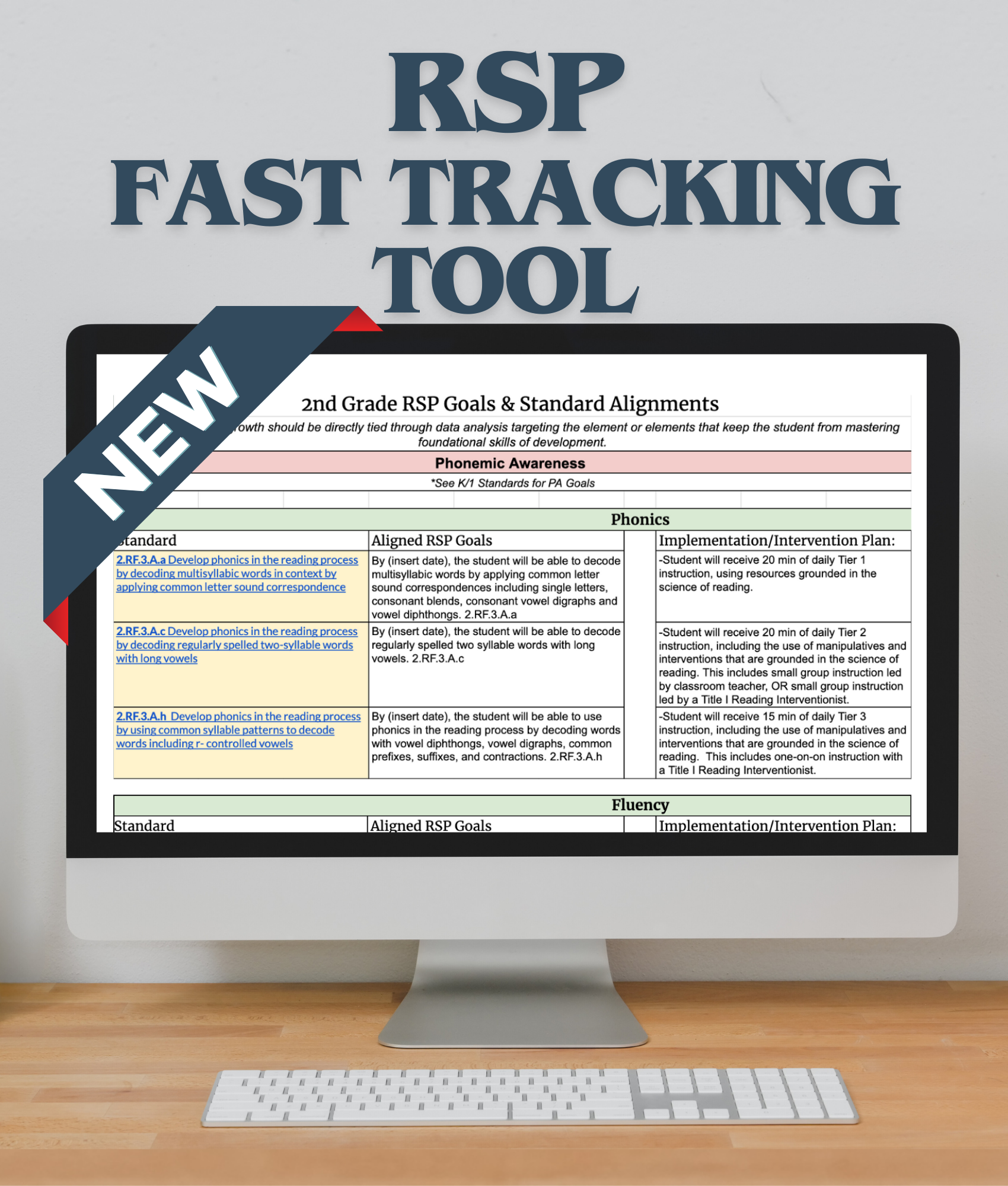Reading Success Plans (RSPs) are product of Missouri Senate Bill 681. RSPs are a tool used to pinpoint reading strengths and weaknesses, how the school will help address these weaknesses, and how parents can help address reading weaknesses at home. RSPs help parents and their child's school partner together to boost reading ability and close gaps in areas of reading.
Introducing the RSP Fast Tracking Tool, a revolutionary solution meticulously crafted to streamline the arduous task of writing and monitoring Reading Success Plans.
Designed with educators in mind, this innovative tool empowers teachers to effortlessly navigate the complexities of RSPs, freeing up valuable time to prioritize the heart of their mission: delivering impactful literacy intervention and instruction.
With its user-friendly interface and comprehensive features, the RSP Fast Tracking Tool redefines efficiency, enabling educators to dedicate their energy where it truly matters – nurturing the academic growth and success of every student.
Learn more by clicking the button below.
My student’s Reading Success Plan shows he/she is qualified in…
Phonemic Awareness
Phonemic awareness deals with identifying and manipulating single sounds in words, known as phonemes. A phoneme is the smallest possible unit of sound in a language (e.g. /b/, /i/, /g/). They blend together to form words (big). Every word we use is made up of a combination of phonemes.
What can I do to help?
Phonics
Phonics involves matching the sounds of spoken English with individual letters or groups of letters. For example, the sound /k/ can be spelled as c, k, ck or ch. Teaching children to blend the sounds of letters together helps them decode unfamiliar or unknown words by sounding them out.
What can I do to help?
Vocabulary
Vocabulary learning is all about the words we need to know to both understand what we hear and read and to communicate clearly and with precision (Reading Rockets).
What can I do to help?
Fluency
Fluency is the ability to read a text accurately, quickly, and with expression. Because fluent readers do not have to concentrate on decoding the words, they can focus their attention on what the text means. They can make connections among the ideas in the text and their background knowledge. In other words, fluent readers recognize words and comprehend at the same time (source Reading Rockets).
What can I do to help?
Comprehension
Comprehension is the reason for reading. If readers can read the words but do not understand or connect to what they are reading, they are not really reading. Good readers are both purposeful and active, and have the skills to absorb what they read, analyze it, make sense of it, and make it their own (Source: Reading Rockets).
What can I do at home?
Orthography/Syntax
Orthography is a writing system for representing a language. English is "a deep alphabetic orthography. Its spelling system represents morphemes (meaningful parts) as well as speech sounds." (LETRS, 2019) If a student is struggling with knowing their letters and sounds, they will continue to struggle as they translate alphabetic symbols into recognizing spoken words.
What can I do to help?
Syntax is the organization of words into complete sentences. It is the "rule system" for how words and phrases come together. Literacy How
What can I do to help?



